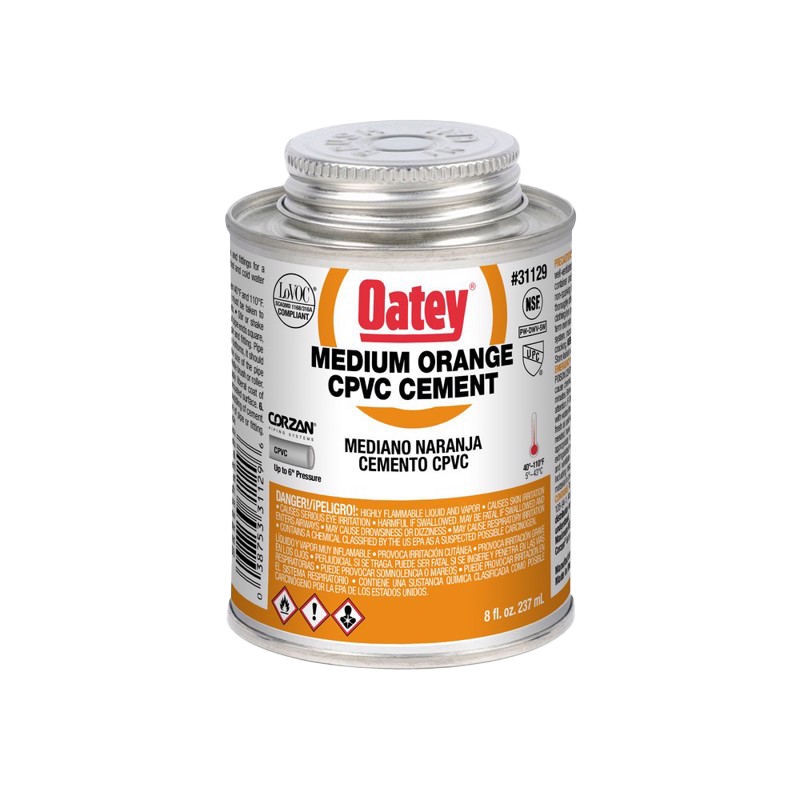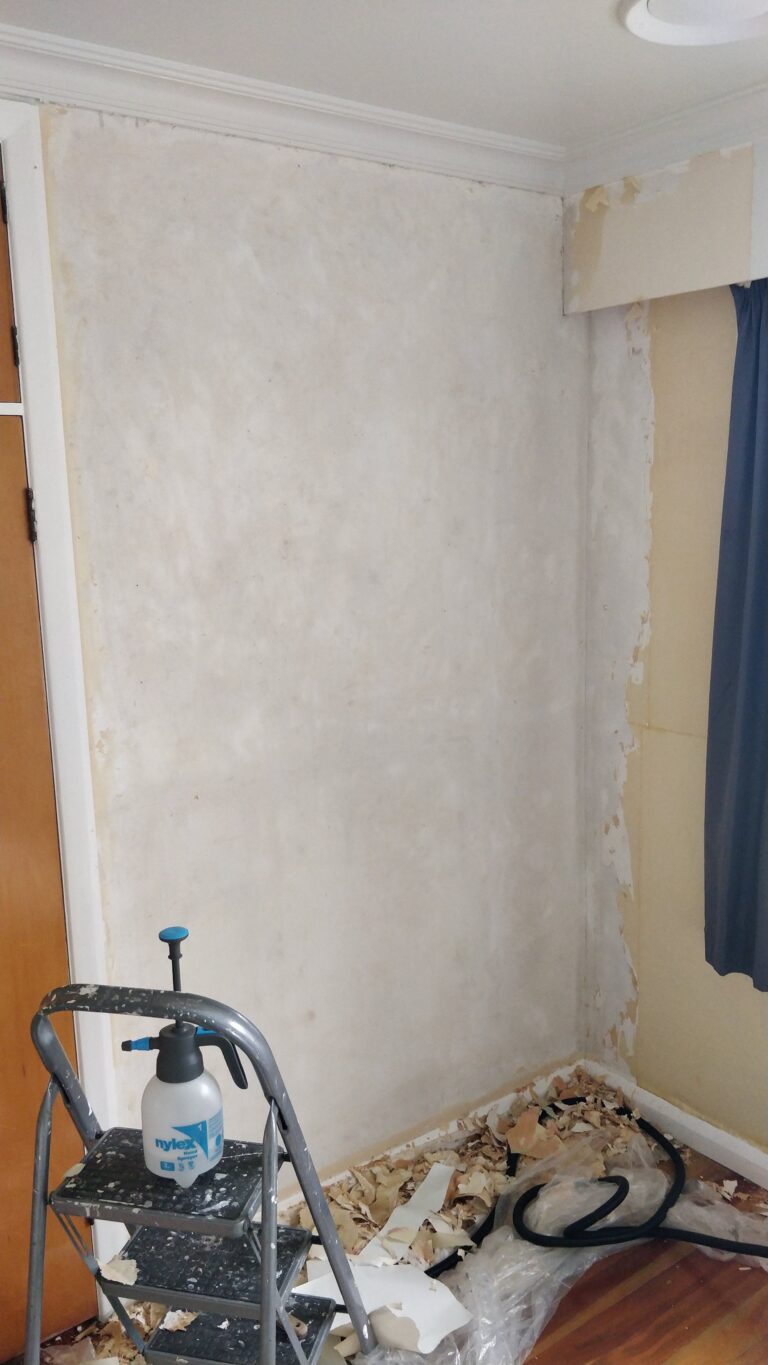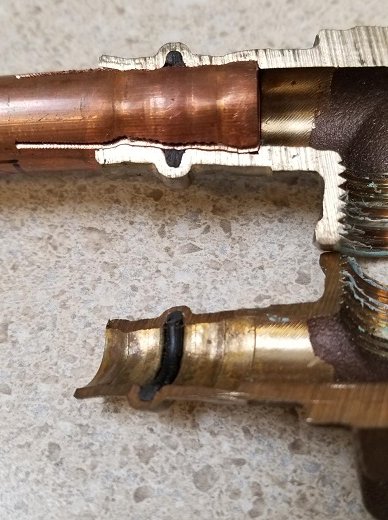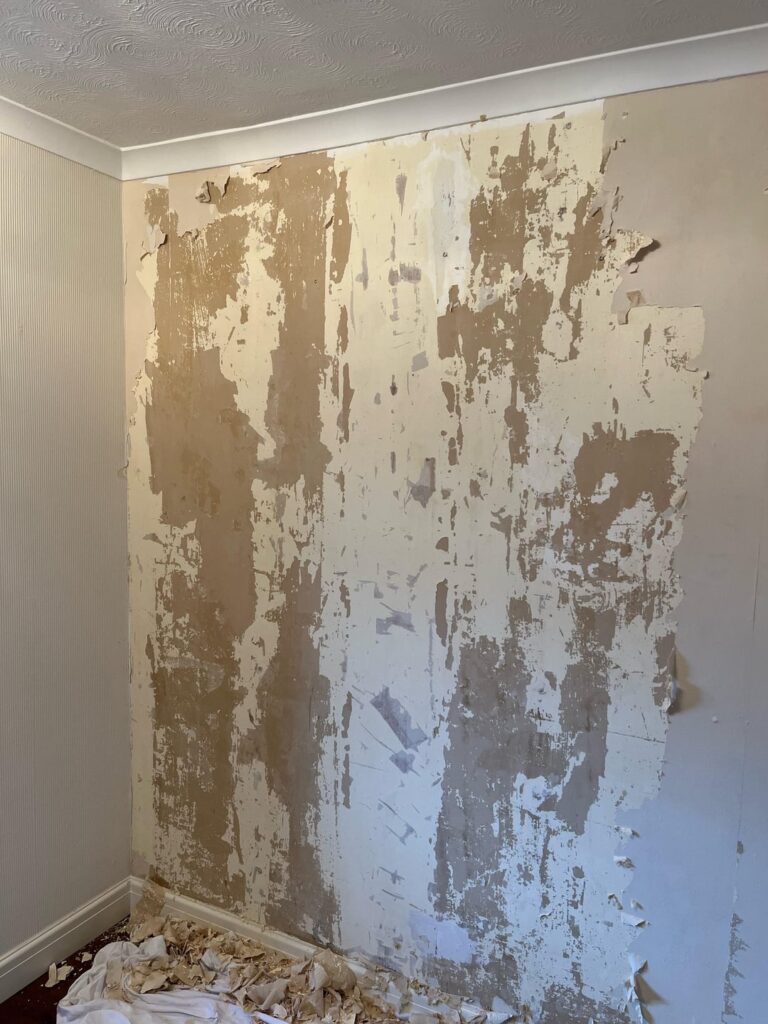Can You Use Orange Cpvc Cement on Pvc Pipe: Expert Insights
No, you shouldn’t use orange CPVC cement on PVC pipe. It isn’t designed for that purpose.
It may not create a strong bond. Choosing the right cement for your pipes is important. CPVC and PVC pipes have different chemical compositions. The orange CPVC cement is specifically formulated for CPVC pipes. Using it on PVC pipes can lead to leaks and weak joints.
This guide will help you understand why using the correct cement matters. Learn how to ensure your plumbing system remains safe and secure.
Introduction To Cpvc And Pvc
Ever found yourself staring at a jumble of plastic pipes, wondering which cement to use? You’re not alone. Many DIY enthusiasts and professionals alike have pondered this question. Today, we’ll dive into the world of CPVC and PVC pipes to clear up the confusion. Let’s start with an introduction to CPVC and PVC.
CPVC and PVC are two of the most commonly used materials in plumbing. While they look similar, they have different properties and uses. Understanding these differences is key to choosing the right cement and ensuring your project is a success.
Cpvc And Pvc Differences
CPVC stands for Chlorinated Polyvinyl Chloride, while PVC stands for Polyvinyl Chloride. The main difference between the two is the presence of chlorine in CPVC, which allows it to withstand higher temperatures. Here’s a quick comparison:
| Property | CPVC | PVC |
|---|---|---|
| Temperature Tolerance | Up to 200°F (93°C) | Up to 140°F (60°C) |
| Color | Typically yellow or cream | Usually white or gray |
| Usage | Hot and cold water systems | Cold water systems and drainage |
Common Applications
Now that we know the differences, let’s see where each type is commonly used:
- CPVC: Ideal for both hot and cold water lines in residential and commercial buildings. It’s a popular choice for homes in hot climates.
- PVC: Typically used for cold water lines, drainage systems, and outdoor applications due to its UV resistance.
Next time you’re faced with a plumbing project, remember these key points. Using the right material and cement can make all the difference. Stay tuned for more tips on how to choose the right cement for your pipes!

Credit: www.reddit.com
Types Of Cements For Pipes
When working with pipes, choosing the right cement is crucial. Whether you’re fixing a leak, installing a new system, or just doing some maintenance, the type of cement you use can make a big difference. Let’s dive into the different types of cements available for pipes, and see which one is suitable for your needs.
Cpvc Cement
CPVC cement, or chlorinated polyvinyl chloride cement, is designed specifically for CPVC pipes. This type of cement is used for hot and cold water lines, and it can withstand high temperatures. It’s known for its strong, durable bond. If you’re working on a project where the pipes will carry hot water, CPVC cement is your go-to choice. It’s easy to apply, and it sets quickly, so you can get your job done efficiently.
Pvc Cement
PVC cement, on the other hand, is made for PVC pipes. These pipes are commonly used for irrigation, waste lines, and cold water systems. PVC cement is designed to create a strong bond between PVC pipes and fittings. It works by softening the surface of the pipes, allowing them to fuse together. This type of cement is not suitable for hot water pipes, as it can’t handle high temperatures. So, if you’re working on a cold water system or drainage, PVC cement is the right choice.
In summary, using the right cement for your pipe type is essential. Mixing up CPVC and PVC cement can lead to leaks and system failures. Always double-check the type of pipes you’re working with and choose the appropriate cement. Your future self will thank you!
Chemical Composition
Understanding the chemical composition of adhesives is crucial for proper pipe connections. Using the right cement ensures durability and safety. This section explores the ingredients in CPVC and PVC cements.
Ingredients In Cpvc Cement
CPVC cement contains several key components. The primary ingredient is CPVC resin. This resin provides the necessary bonding strength. A strong solvent like tetrahydrofuran (THF) is also present. THF helps dissolve the CPVC resin. The cement also includes stabilizers. These prevent the cement from degrading over time.
Additionally, fillers are used in CPVC cement. These fillers improve the bond. The cement also has colorants. These give it the distinctive orange color. The precise formulation ensures a strong and lasting bond for CPVC pipes.
Ingredients In Pvc Cement
PVC cement has a slightly different composition. The main ingredient is PVC resin. This resin provides the adhesive qualities needed. A solvent like methyl ethyl ketone (MEK) is present. MEK helps dissolve the PVC resin for a strong bond. Stabilizers in the cement prevent degradation.
Fillers are also used to enhance the bond. The cement may include colorants. These colorants give it a distinctive look. The formulation of PVC cement ensures it works well with PVC pipes.
Compatibility Issues
Compatibility issues arise when using different types of cement for plumbing. Specifically, orange CPVC cement on PVC pipe can cause several problems. Understanding these issues is crucial for safe and effective plumbing work.
Chemical Reactions
Orange CPVC cement and PVC pipe are chemically different. CPVC cement contains solvents designed for CPVC material. These solvents may not react properly with PVC pipe. This mismatch can weaken the pipe’s structure.
The chemical bond formed may not be as strong as needed. This can lead to leaks and potential pipe failure. Always use cement specifically designed for the material you are working with.
Risk Factors
Using the wrong cement increases the risk of plumbing failures. Improper bonding can cause leaks over time. Leaks can result in water damage and costly repairs.
Temperature changes can also affect the bond. CPVC and PVC respond differently to heat and cold. This difference can lead to expansion and contraction issues. The pipe and the cement may separate under stress.
For safety and durability, always match the cement to the pipe material. This ensures a secure and reliable plumbing system.
Expert Opinions
When working with plumbing materials, the choice of cement can make a big difference. Many wonder if they can use orange CPVC cement on PVC pipe. Expert opinions on this topic provide valuable insights. Let’s explore what the experts say.
Plumbing Professionals
Plumbing professionals have years of experience. They often deal with various piping materials. Many experts advise against using CPVC cement on PVC pipes. They highlight that CPVC cement is designed for CPVC pipes. Using it on PVC might not create a proper bond.
Some plumbers say that CPVC cement can work in certain cases. But, they caution that it is not reliable. The bond may not be as strong. This can lead to leaks and other issues.
Manufacturers’ Guidelines
Manufacturers provide clear guidelines for their products. They design CPVC cement specifically for CPVC pipes. The chemical composition of CPVC cement differs from PVC cement. This difference can affect the bond strength.
Manufacturers recommend using the right type of cement for each material. Following these guidelines ensures a secure connection. It prevents potential problems in the long run.

Credit: www.oatey.com
Potential Risks
Using orange CPVC cement on PVC pipe can lead to leaks and weak joints. This mismatch may cause serious plumbing issues over time.
Using orange CPVC cement on PVC pipe can pose several risks. It’s crucial to understand these dangers before proceeding. Misusing these materials can lead to serious issues.Pipe Failures
Using the wrong cement can cause pipe failures. Orange CPVC cement is designed for CPVC pipes. PVC pipes need a different type of cement. Using the wrong cement can weaken the joint. This may cause leaks or even bursts. The incorrect bond can compromise the pipe’s integrity.Health Hazards
Inappropriate use of cement can pose health hazards. Orange CPVC cement contains strong chemicals. These chemicals can be harmful if inhaled or touched. When used improperly, fumes can cause respiratory issues. Skin contact can lead to irritation or burns. Proper ventilation and safety gear are essential. “`Alternative Solutions
When it comes to using the right cement for your plumbing projects, things can get a bit tricky. You might wonder if you can use orange CPVC cement on PVC pipe. The short answer is: it’s not recommended. But don’t worry, there are alternative solutions that can save the day and keep your pipes securely bonded. Let’s dive into some of these options and best practices to ensure a leak-proof connection.
Suitable Cements
Choosing the right cement is crucial for a secure and durable bond. Here are some suitable options:
- PVC Cement: This is specifically designed for PVC pipes. It creates a strong, water-tight seal. Stick to this for all your PVC needs.
- CPVC Cement: Only use this for CPVC pipes. It’s formulated to withstand higher temperatures and pressures, making it perfect for hot water lines.
- Universal Cement: As the name suggests, this can be used on both PVC and CPVC pipes. However, always check the manufacturer’s instructions to ensure compatibility.
Best Practices
For the best results, follow these simple yet effective practices:
- Clean the Pipes: Dirt and debris can weaken the bond. Use a clean cloth to wipe down the pipe ends before applying cement.
- Dry Fit First: Before applying cement, assemble the pipes to ensure they fit correctly. This step can save you from messy adjustments later.
- Use Primer: For PVC pipes, always use a primer before cement. It softens the pipe surface, allowing for a stronger bond.
- Apply Evenly: Spread the cement evenly around the pipe and fitting. Avoid applying too much, as excess cement can create weak spots.
- Allow Proper Drying Time: Give the cement adequate time to dry before testing the connection. Rushing this step can lead to leaks.
Remember, while using orange CPVC cement on PVC pipe might seem convenient, it’s not the best solution. Stick to the right cement for the material you’re working with, and follow these best practices for a reliable, leak-proof bond. Happy plumbing!

Credit: www.reddit.com
Frequently Asked Questions
Can You Use Orange Cpvc Glue On Pvc Pipe?
No, you should not use orange CPVC glue on PVC pipe. Use the correct PVC cement for proper bonding.
What Happens If You Use Cpvc Cement On Pvc?
Using CPVC cement on PVC creates a weak bond and may cause leaks. CPVC cement is not formulated for PVC. Always use PVC cement for PVC pipes.
Can Oatey Cpvc Cement Be Used On Pvc?
No, Oatey CPVC cement cannot be used on PVC. Use PVC cement specifically designed for PVC pipes and fittings.
What Is The Difference Between Pvc And Cpvc Cement?
PVC cement bonds PVC pipes, while CPVC cement bonds CPVC pipes. CPVC cement withstands higher temperatures than PVC cement.
Conclusion
Using the right cement for pipes is crucial. Orange CPVC cement isn’t ideal for PVC pipes. It may cause leaks and weaken joints. Always use the correct PVC cement for your projects. This ensures safety and durability. Choosing the right materials saves time and money in the long run.
Stay informed and make smart choices for your plumbing needs.

My name is Maria, A professional merge game player with years of experience mastering games like Merge Dragons, Merge Gardens, Merge Mansion, and more. My passion for uncovering the best strategies, solving tricky puzzles, and discovering hidden secrets led her to create MergeGameplay.com.





